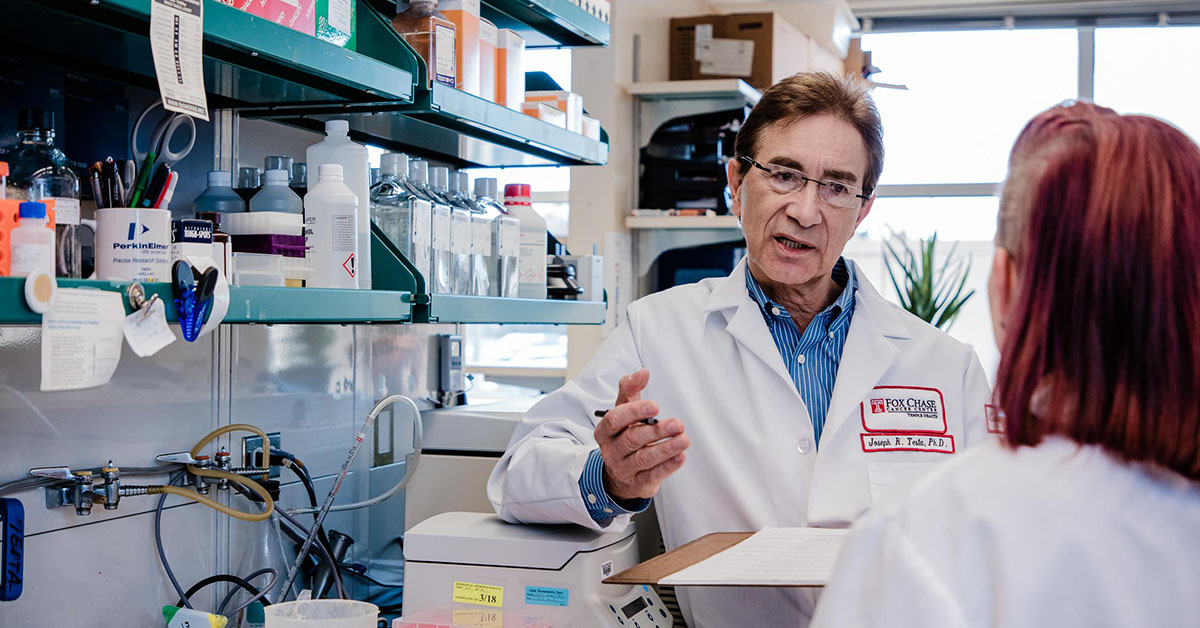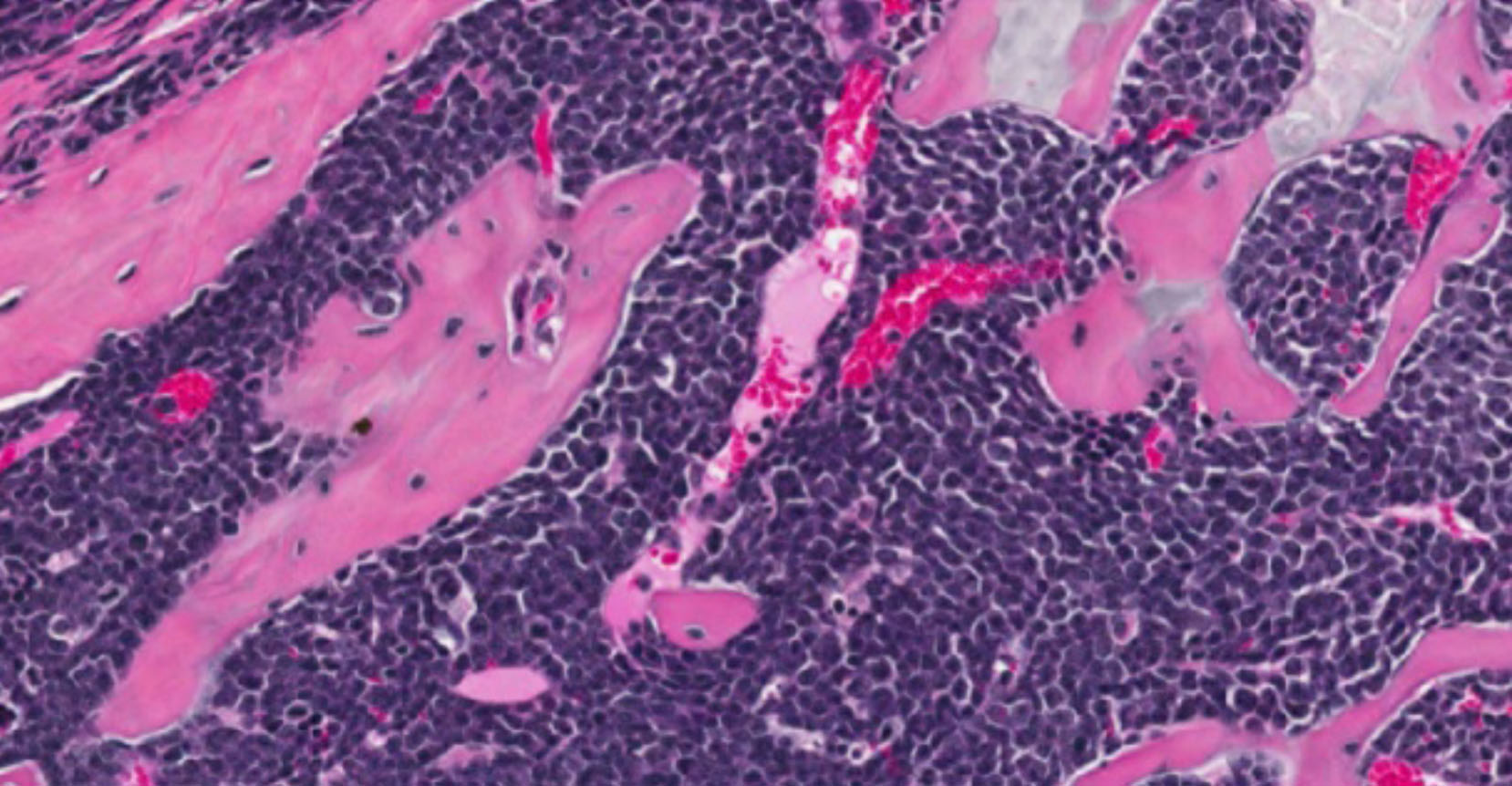
PHILADELPHIA (November 13, 2020) – In a recently published paper, researchers at Fox Chase Cancer Center unveiled data that suggested possible new targets for the treatment of T-acute leukemia/lymphoma (T-ALL).
The research detailed the discovery in animal models of the oncogenic synergy between the Akt2 kinase and the Dlx5 homeobox protein, which is mediated by Wnt/β-catenin-regulated SREBF-2 cholesterol synthesis.
“These findings have translational implications because alterations of the Wnt/β-catenin and Akt/Pten pathways, as well as dysregulation of homeobox genes such as HOXA and HOX11, are frequently observed in T-ALL of adults and children,” said Joseph R. Testa, PhD, FACMG, professor and co-leader of the Cancer Biology program at Fox Chase.
Testa, who is also the Carol and Kenneth E. Weg Chair in Human Genetics at Fox Chase, conducted the study with other researchers at Fox Chase, including co-first authors Yinfei Tan, PhD, and Eleonora Sementino, MS.

Previous research had shown that overexpression of the Dlx5 homeobox gene activated NOTCH and upregulated Akt signaling, inducing T-ALL in mice. Other work by the group had shown that activated Akt2 induces T-ALL, sometimes by upregulating Dlx5.
Based on this knowledge, Testa and colleagues hypothesized that active Akt2 and overexpressed Dlx5 promote the growth of lymphoma. Moreover, if both genes were expressed early in embryonic development, they might synergize to cause highly aggressive T-ALL. To test the theory, they developed doubly transgenic Lck-Dlx5;Lck-Akt2 mice.
These mice showed a much faster tumor onset and far greater dissemination of T-ALL compared with mice that expressed either Dlx5 or Akt2 alone. Death occurred at a rate three to five times faster as well. Analysis of the lymphomas in these mice showed that certain genes involved in the Wnt and cholesterol biosynthesis pathways were upregulated and that these genes were regulated by β-catenin.
Testa and colleagues found that lymphoma cells from the doubly transgenic mice were highly sensitive to β-catenin inhibitors and inhibitors of SREBF2 cholesterol synthesis, such as certain statin drugs used to treat heart attack or stroke. Finally, in human T-ALL cell lines the lymphoma cells were also sensitive to inhibition of β-catenin and cholesterol pathways.
“This investigation suggests that the SREBF2-cholesterol pathway is pivotal to the survival of Lck-Dlx5;Lck-Akt2 lymphoma cells as well as a subset of human T-ALL samples,” Testa said. “Together, these findings suggest that targeting β-catenin and/or cholesterol biosynthesis, together with Akt, could have therapeutic efficacy in some T-ALL patients.”
The paper, “Wnt Signaling Mediates Oncogenic Synergy Between Akt and Dlx5 in T-cell Lymphomagenesis By Enhancing Cholesterol Synthesis,” was published in Scientific Reports.